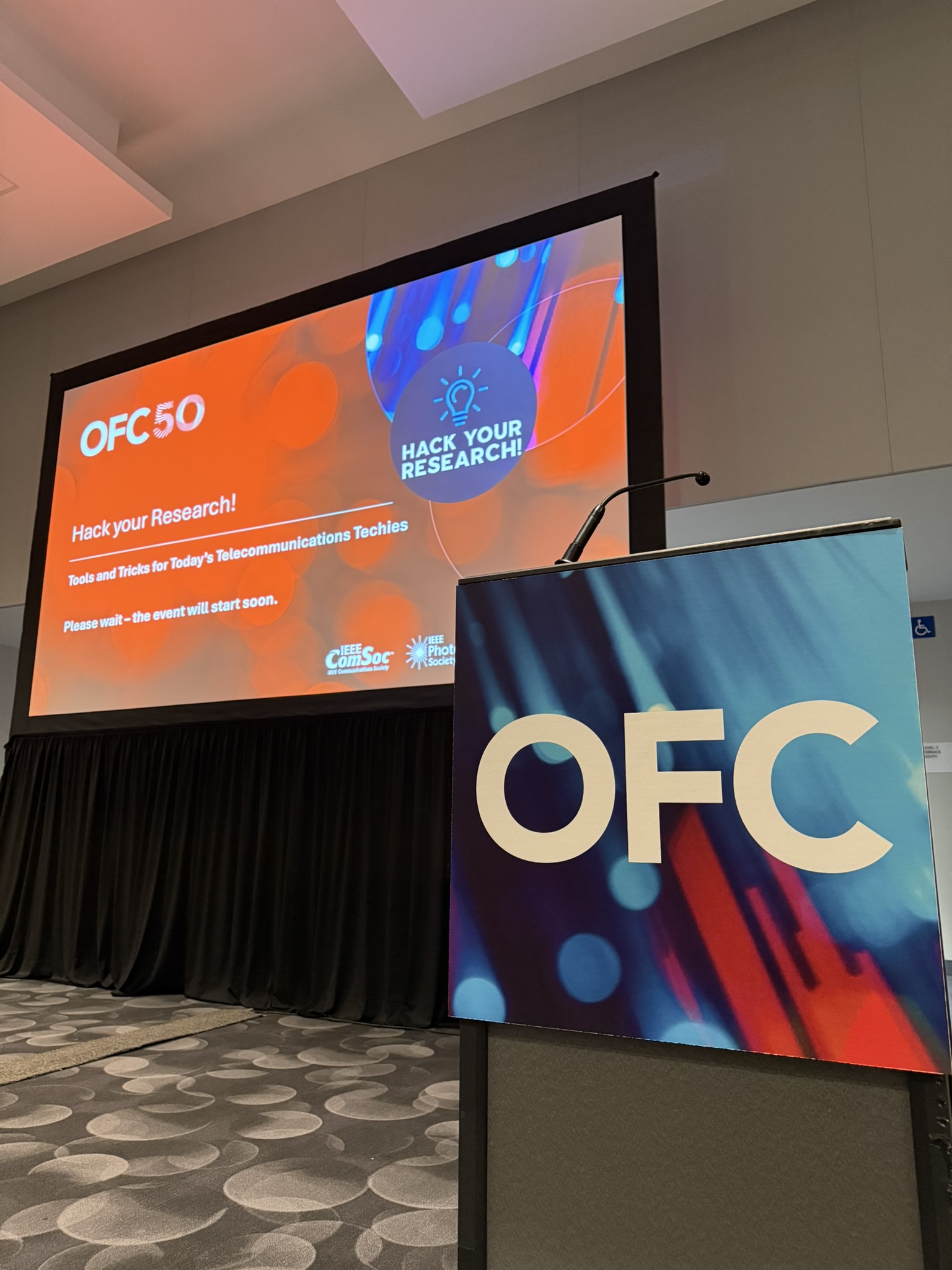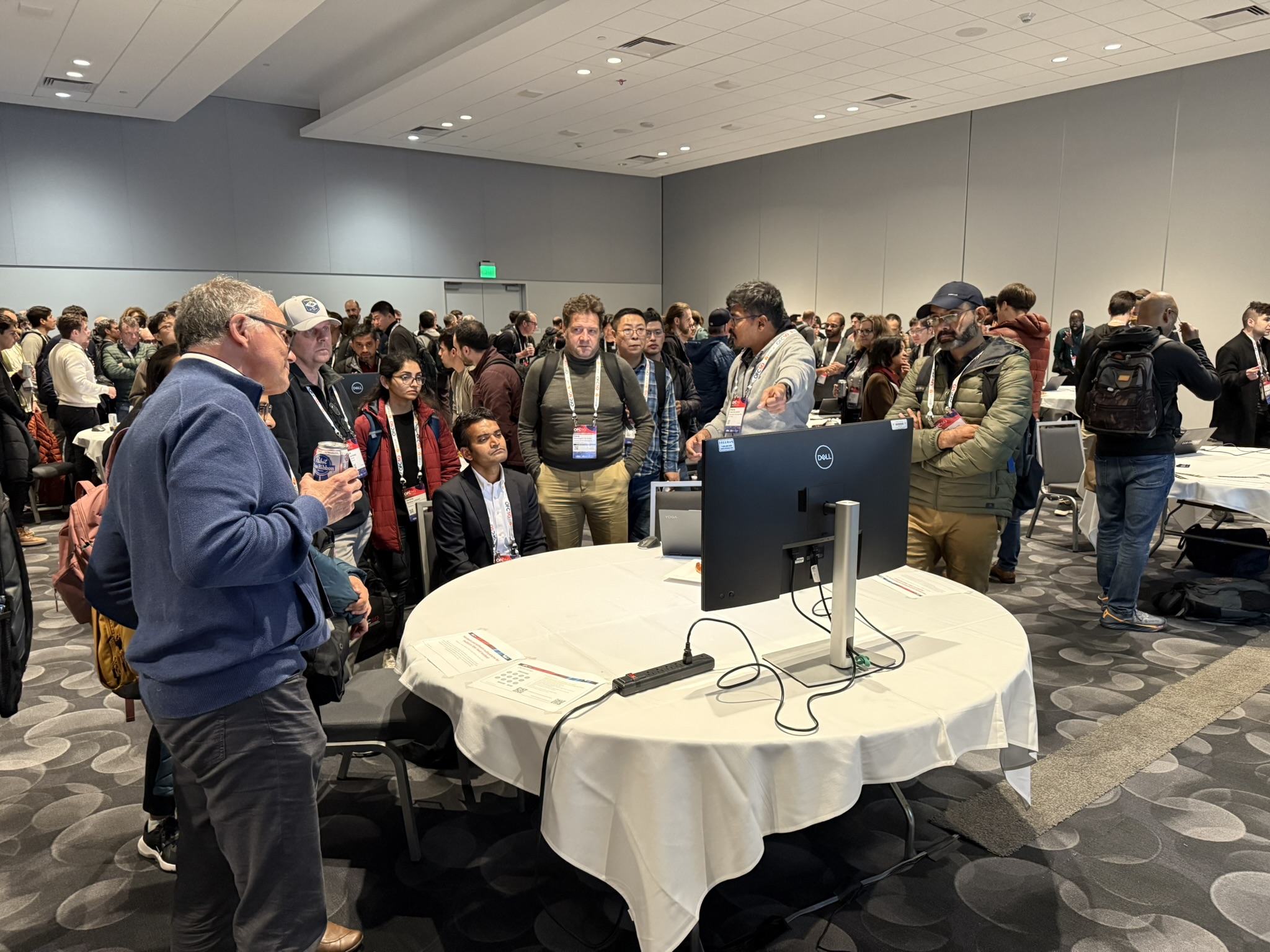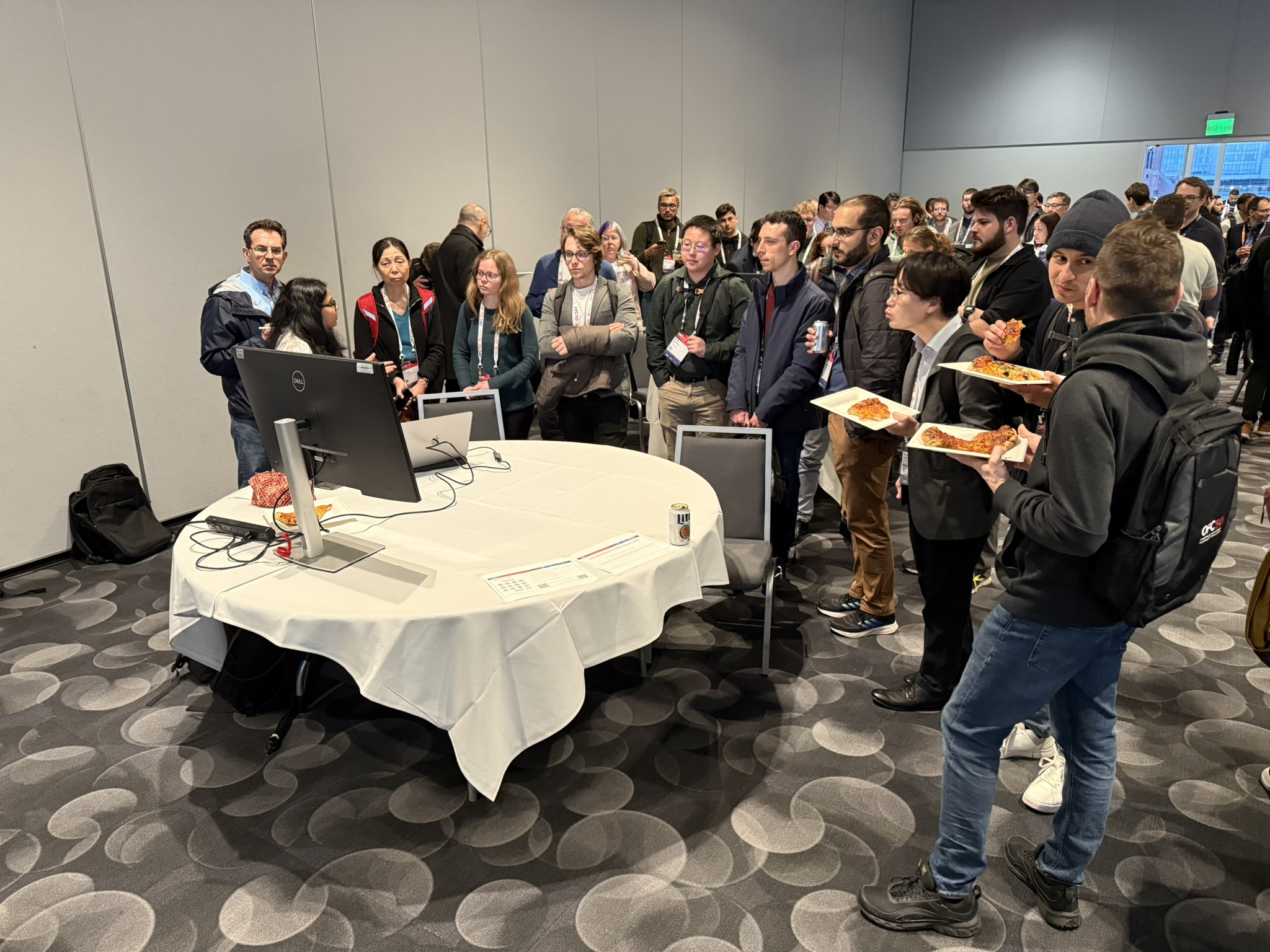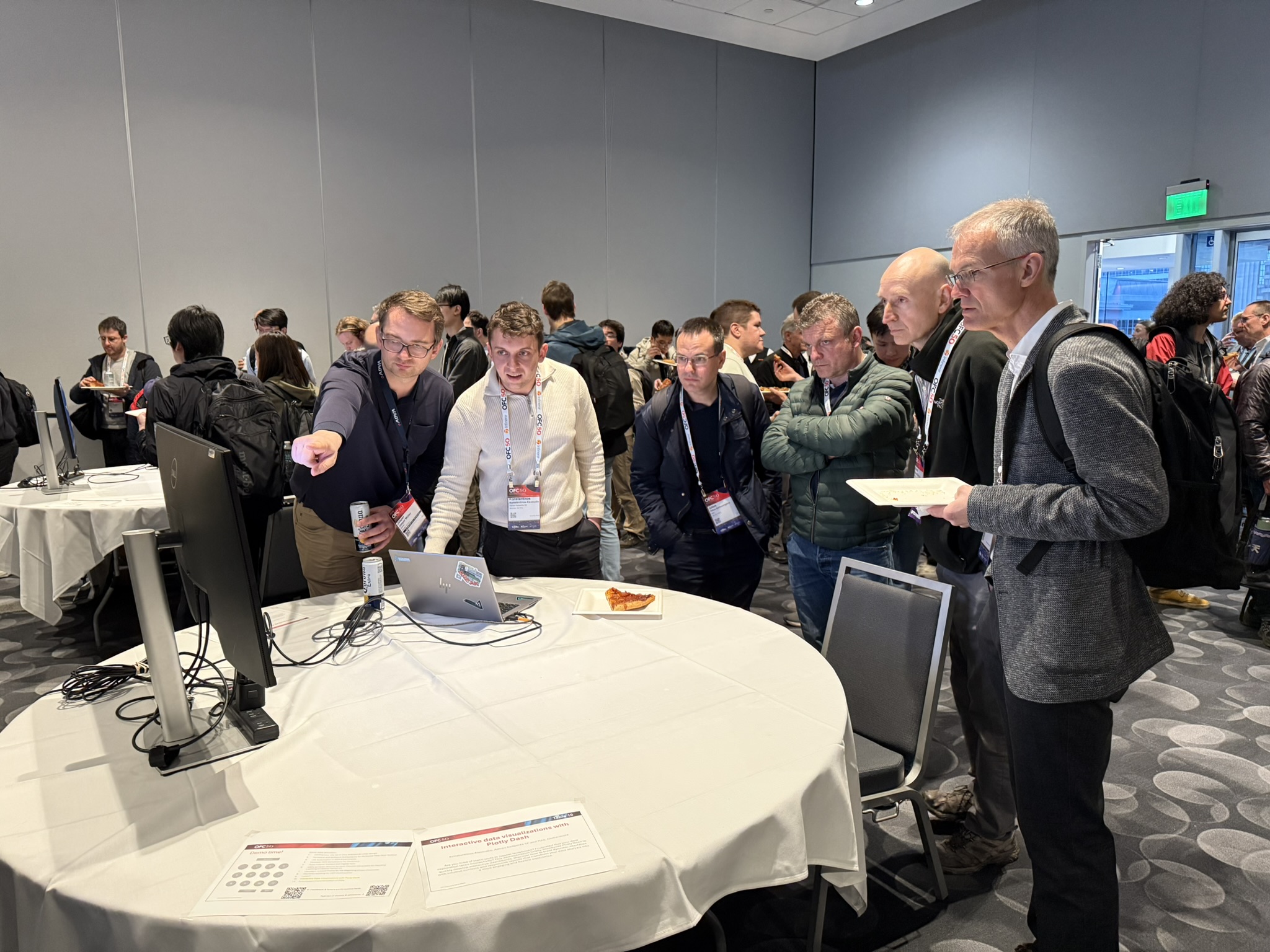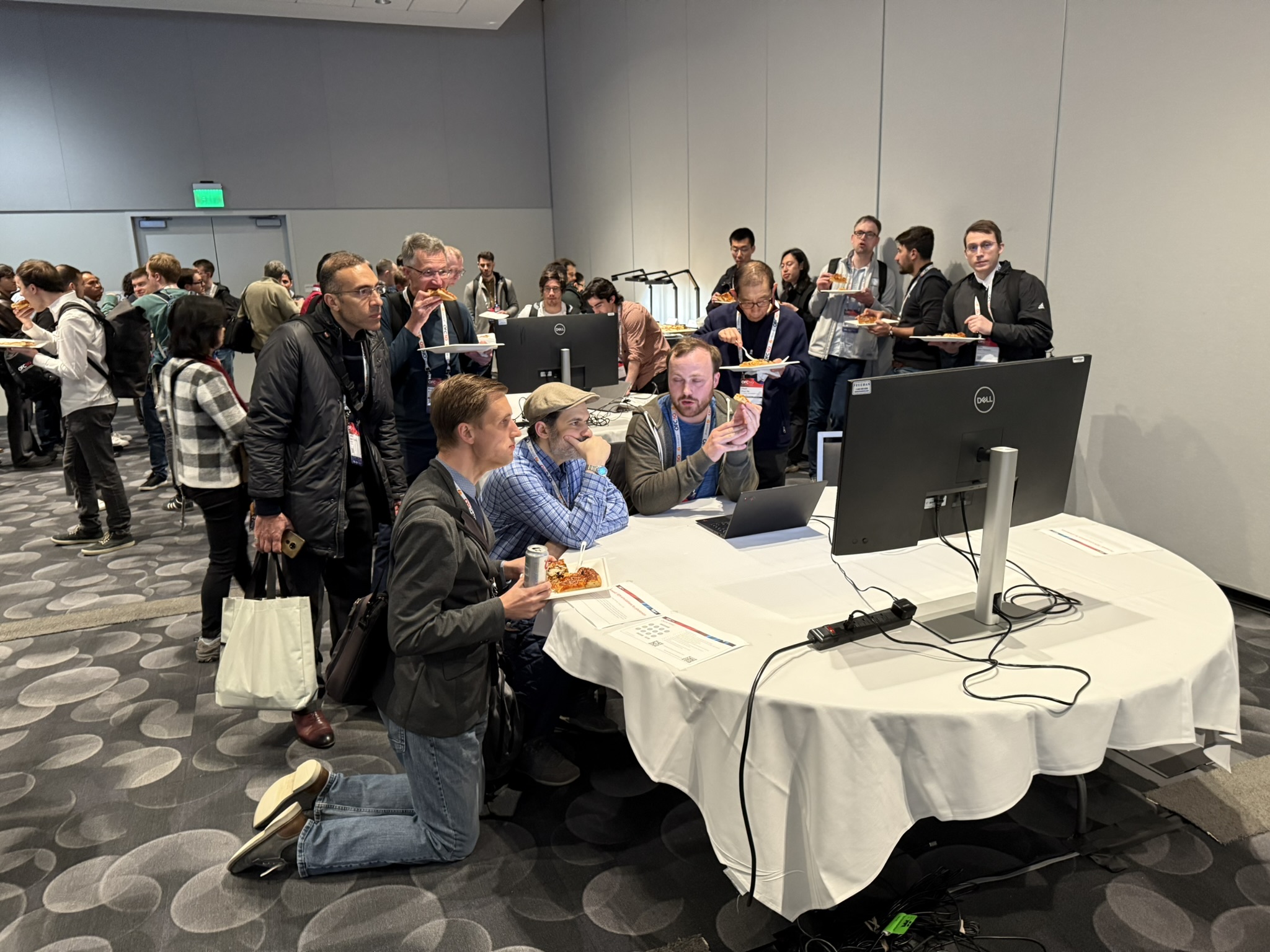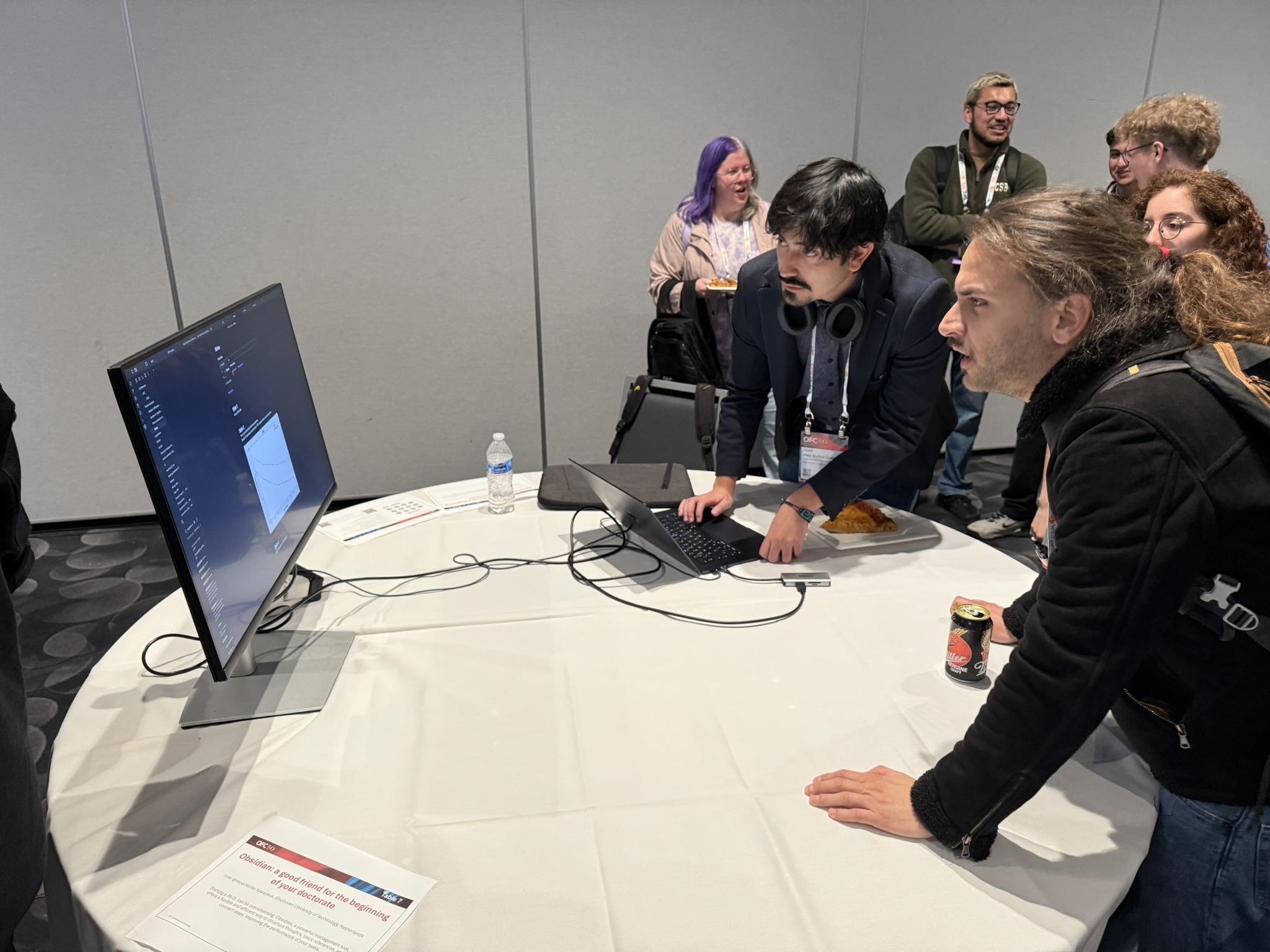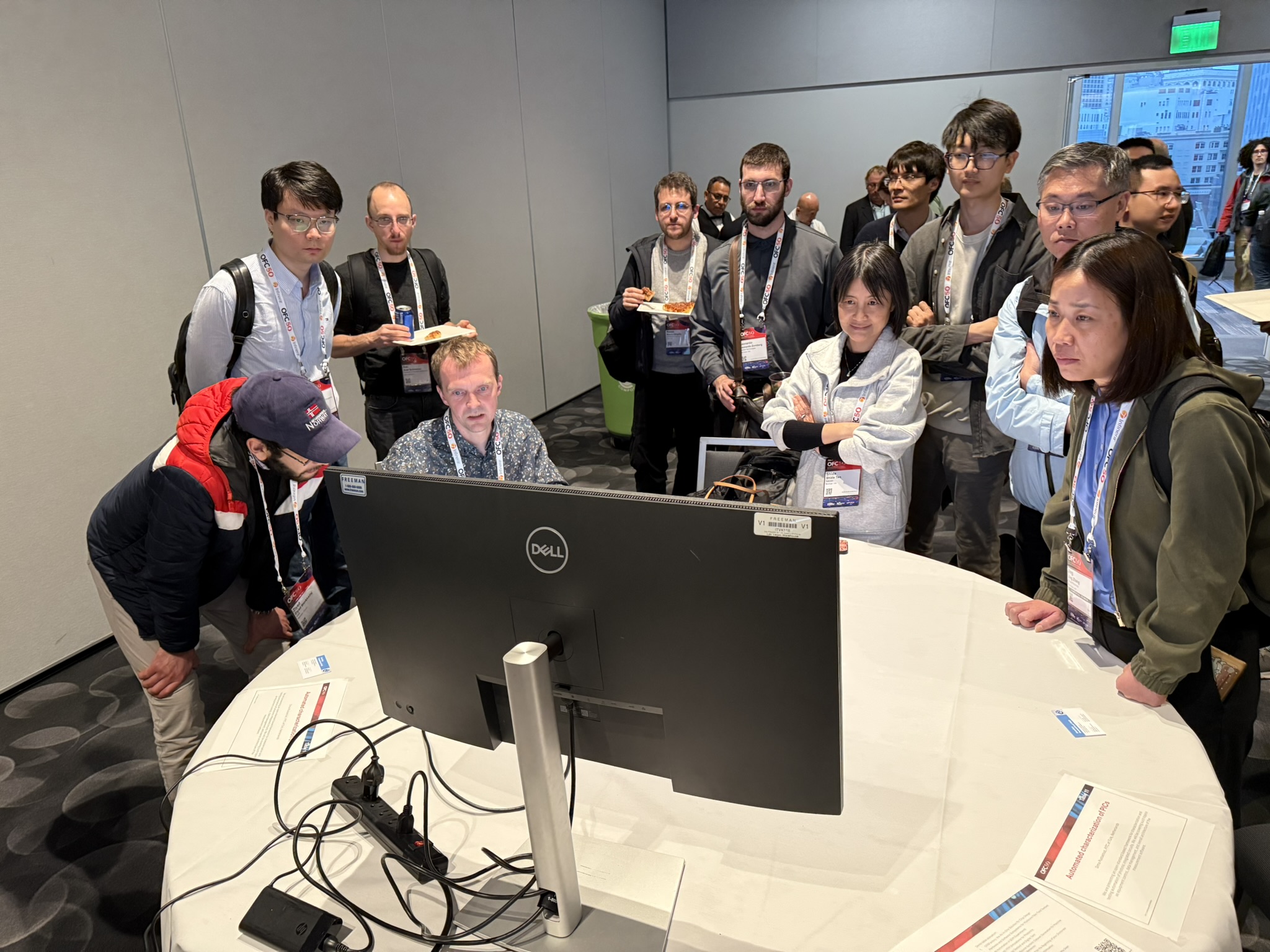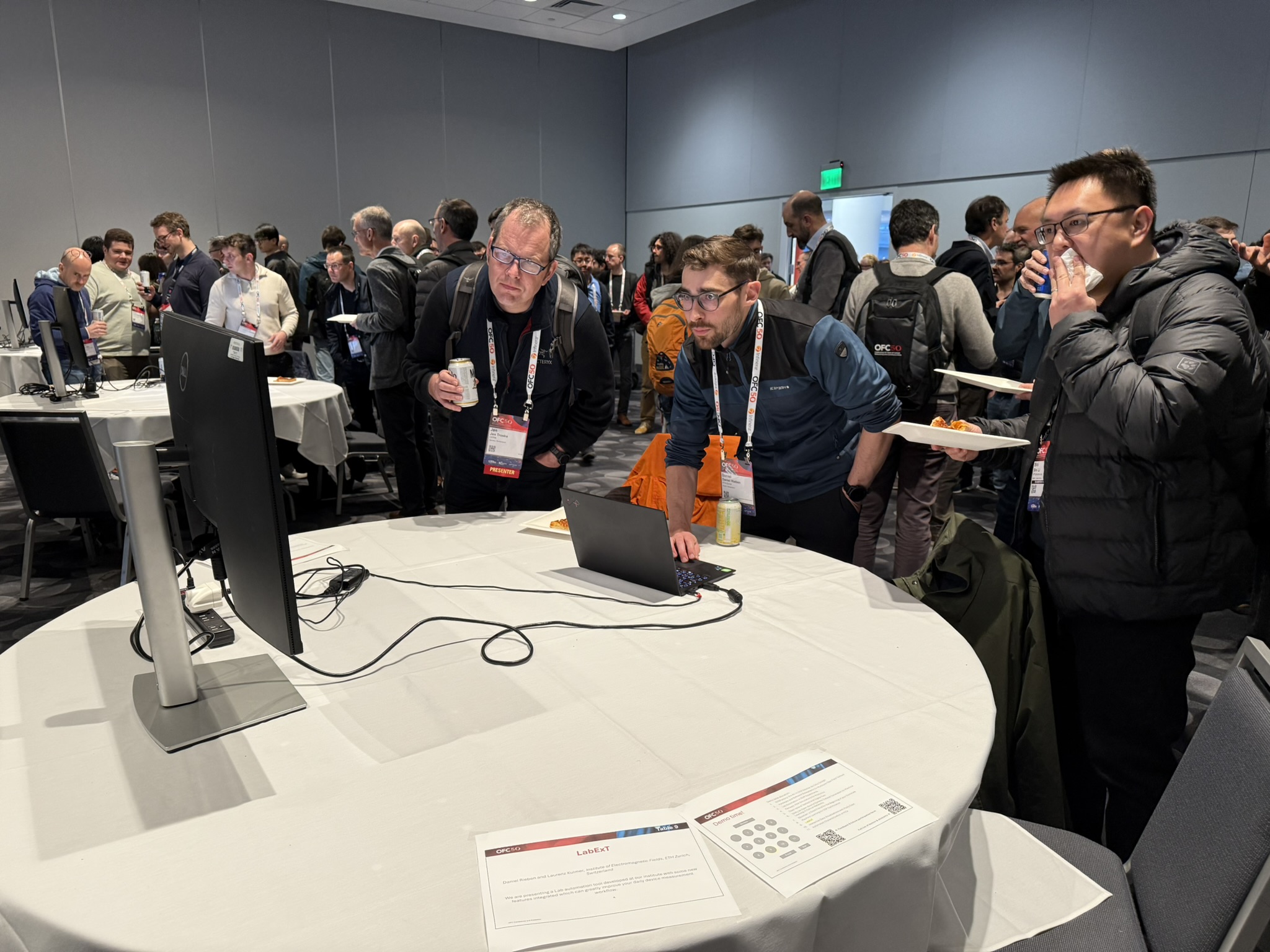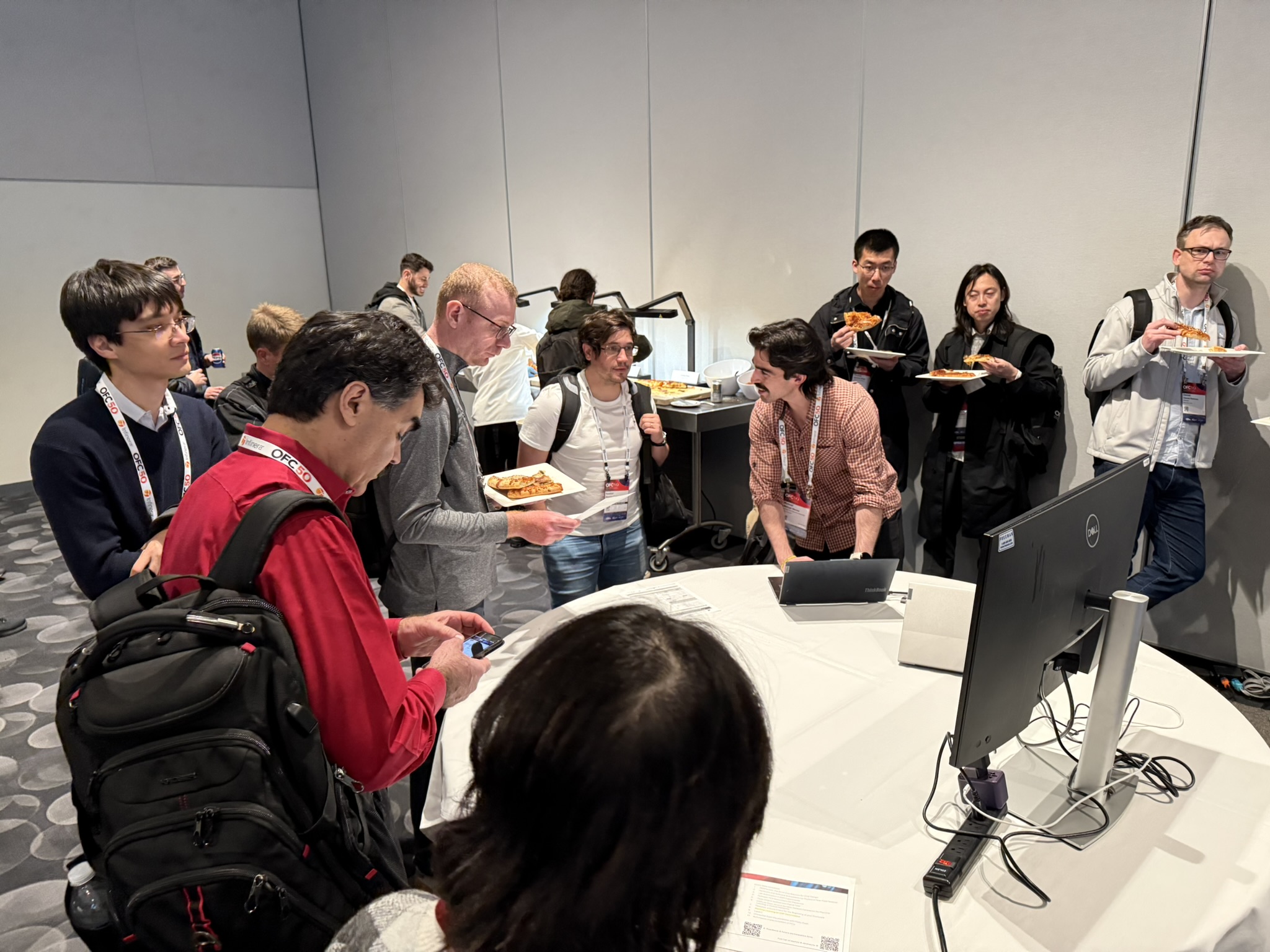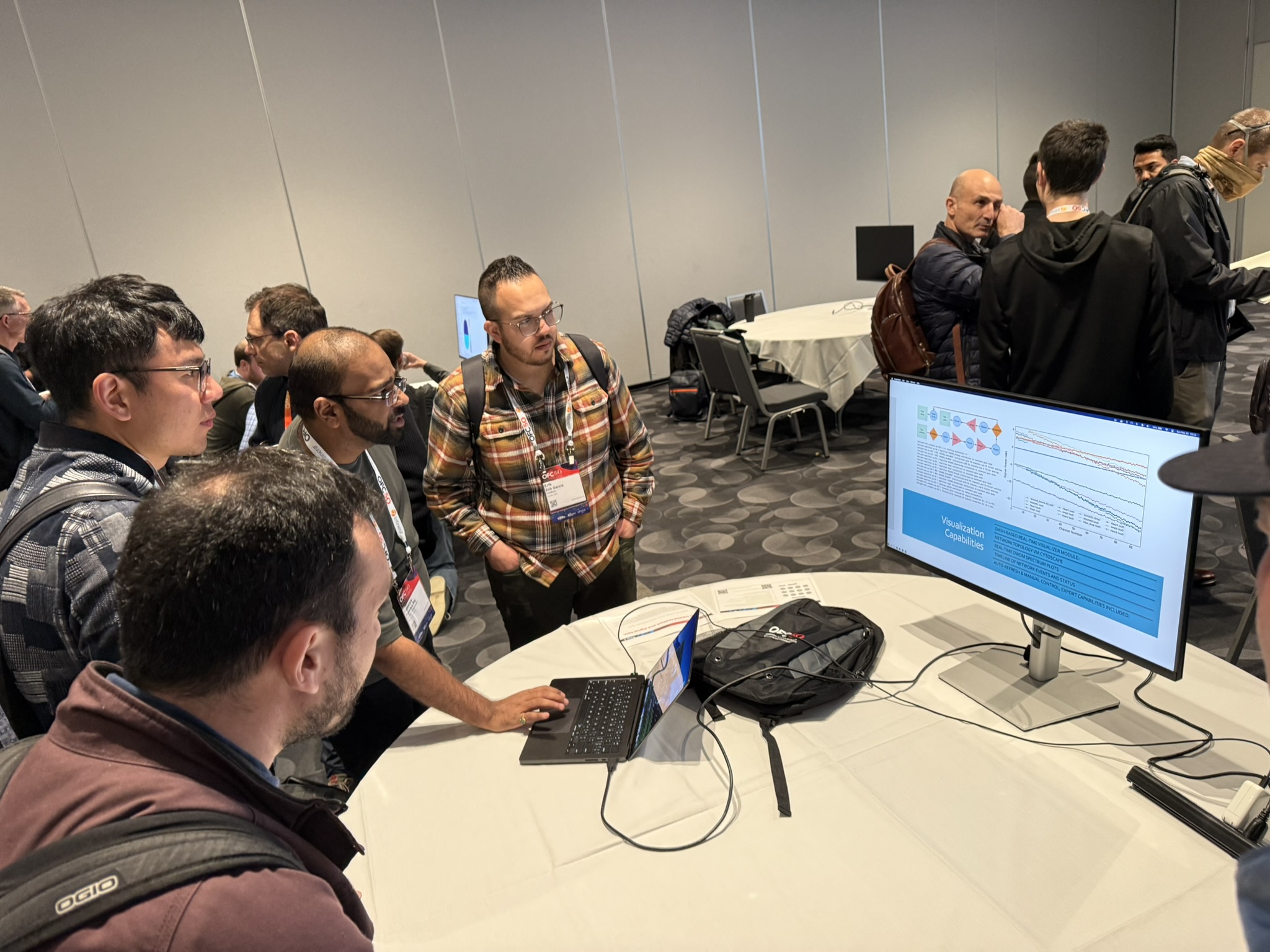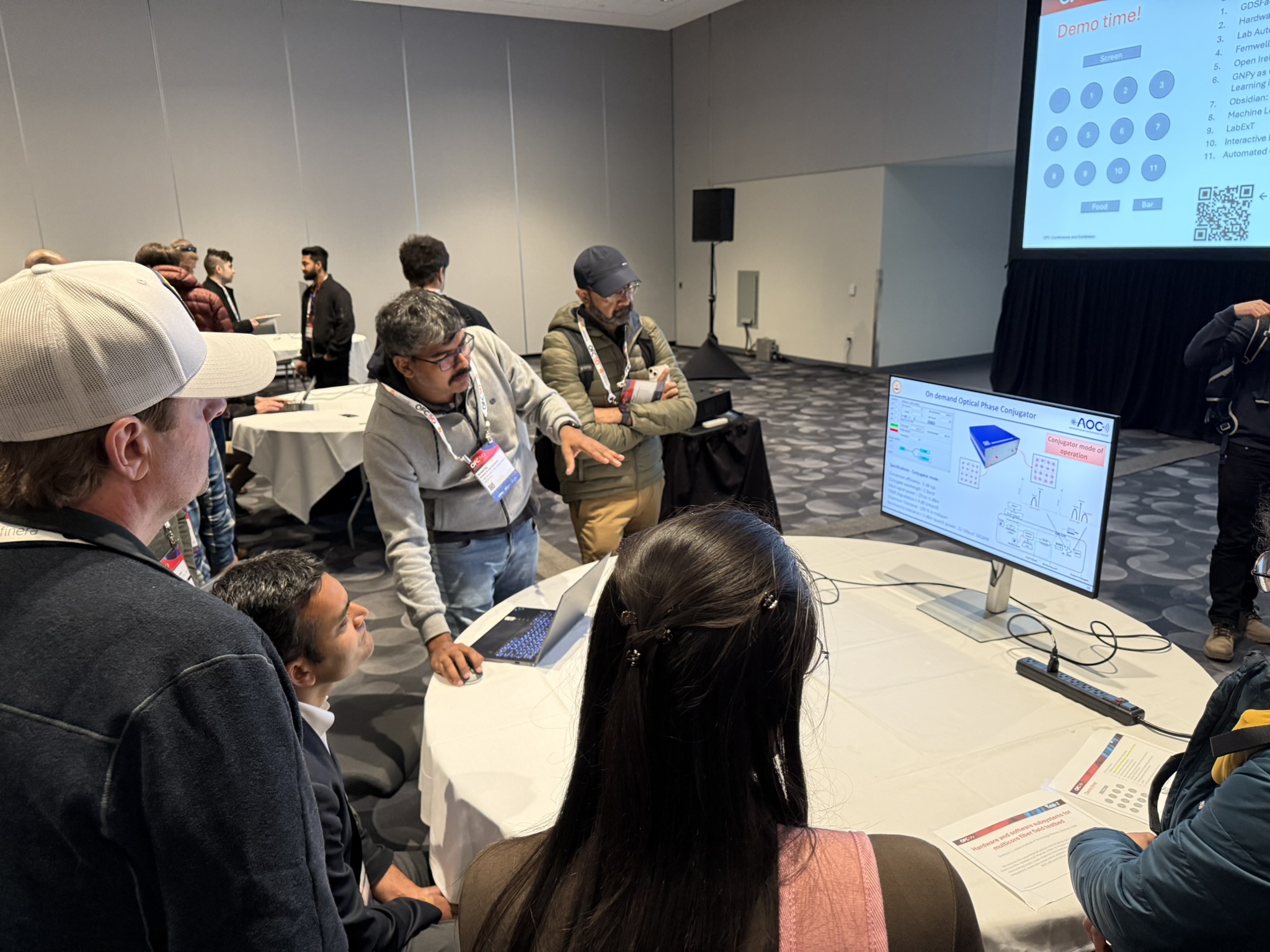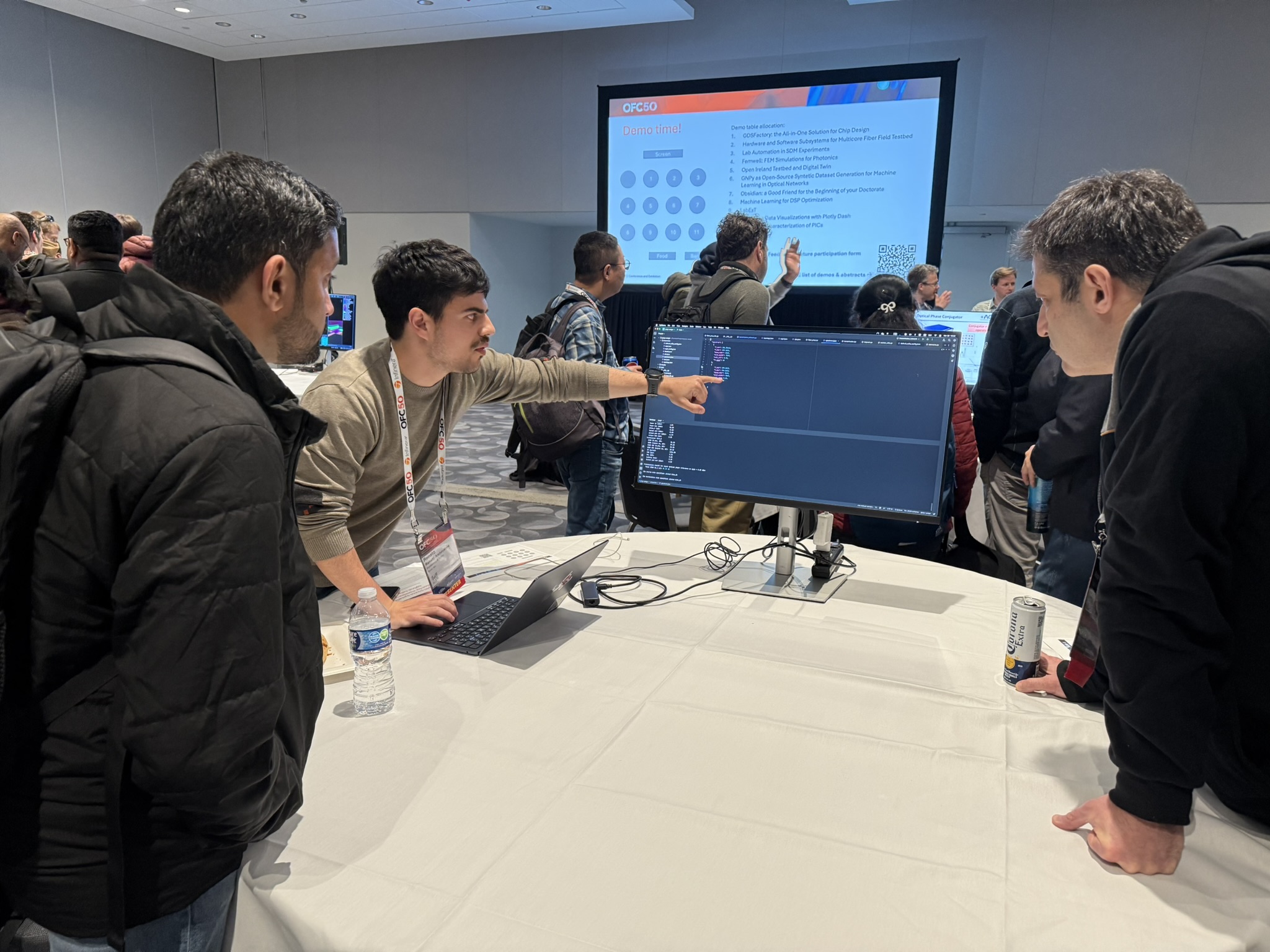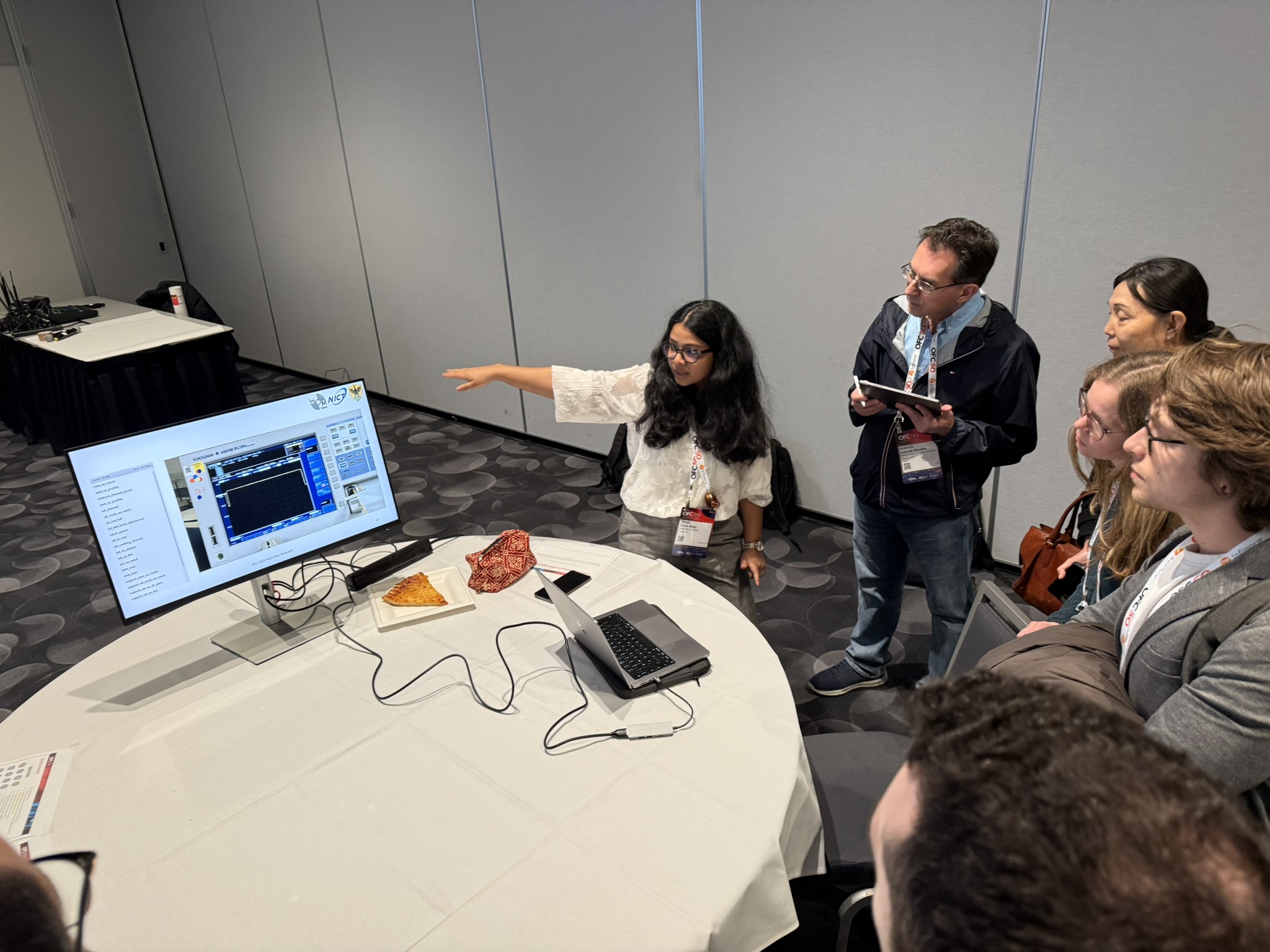Hack your Research! @ OFC 2025
By Marco
Event Date: Sunday, 30th March 2025, 7pm to 9pm PDT
Event Location: Room 303, Moscone Center, San Francisco, California, USA
Link: ofcconference.org - Special Events
Organizers:
Besma Kalla, Eindhoven University of Technology, Netherlands
Amol Delmade, Dublin City University, Ireland
Giammarco Di Sciullo, Università degli Studi dell’Aquila, Italy
Menno van den Hout, Eindhoven University of Technology, Netherlands
Vincent van Vliet, Eindhoven University of Technology, Netherlands
Rekha Yadav, University College London, United Kingdom
Marco Eppenberger, PsiQuantum, USA
Advisory Committee:
Nicolas Fontaine, Nokia Bell Labs, USA
Roland Ryf, Nokia Bell Labs, USA
Jochen Schroeder, Chalmers University of Technology, Sweden
Henrique Buglia, University College London, United Kingdom
Demos:
GDSFactory: the All-in-One Solution for Chip Design
by Joaquin Matres, DoPlayDo Inc., USA
GDSFactory is a powerful Python library for designing a wide range of complex systems, including photonic circuits, analog devices, quantum components, MEMs, 3D printed objects, and PCBs. With GDSFactory, you can create and refine your designs using Python or YAML, perform rigorous verification through Design Rule Checking (DRC), Layout Versus Schematic (LVS) checks, and simulations. Additionally, it facilitates automated lab testing to ensure that your fabricated devices meet precise specifications, streamlining the entire design-to-fabrication workflow.
Hardware and Software Subsystems for Multicore Fiber Field Testbed
by Sreeraj S J, IIT Madras, India
We discuss the experimental setups and schemes aiding the field-deployed multicore fiber testbed in IIT Madras, India. In-house-built optical frequency combs, recirculating loops, multi-channel bias controllers, on-demand optical phase conjugators, automatic polarization aligners, and related GUIs developed using MATLAB and Python are discussed.
Lab Automation in SDM Experiments
by Divya Shaji, University of L’Aquila, Italy
We demonstrate how automating measurements can reduce time and simplify the implementation of large-scale experiments involving space-division multiplexed fibers.
Femwell: FEM Simulations for Photonics
by Helge Gehring, Google, USA
Femwell is an open source project which implements finite-element based simulations for photonics. It offers a mode solver, a heat solver and a solver for the electric field, allowing for complex integral based mode analysis and multi-physics simulations for applications like thermal and electro-optic phase shifters.
Open Ireland Testbed and Digital Twin
by Agastya Raj, CONNECT Centre, Trinity College Dublin, Ireland
This demo showcases experiment automation and data collection on the Open Ireland testbed, enabling seamless network experimentation. We also present a Mininet-Optical-based digital twin framework, providing a scalable, software-defined emulation of the testbed for rapid prototyping, testing, and validation of optical network deployments.
GNPy as Open-Source Syntetic Dataset Generation for Machine Learning in Optical Networks
by Renato Ambrosone, Politecnico di Torino, Italy
This presentation introduces GNPy as an open-source tool for simulating optical network performance, showcasing a use case where GNPy is used to generate datasets for machine learning model training. We will explore the benefits of leveraging GNPy to create realistic data for transmission quality prediction and network optimization.
Obsidian: a Good Friend for the Beginning of your Doctorate
by José Ignacio Núñez Kasaneva, Eindhoven University of Technology, Netherlands
Starting a Ph.D. can be overwhelming. Obsidian, a powerful management tool, offers a flexible and efficient way to structure thoughts, track references, and connect ideas.
Machine Learning for DSP Optimization
by Manuel S. Neves, Instituto de Telecomunicações, University of Aveiro, Portugal
Join us for a demo of a machine learning tool that optimizes DSP subsystems when the optimal solution is unknown. Built with Python and TensorFlow, it adapts to system constraints like bandwidth and phase noise, with real-time learning visualization via a web-based interface.
LabExT
by Daniel Rieben and Laurenz Kulmer, Institute of Electromagnetic Fields, ETH Zurich, Switzerland
We are presenting a Lab automation tool developed at our institute with some new features integrated which can greatly improve your daily device measurement workflow.
Interactive Data Visualizations with Plotly Dash
by Konstantinos Alexoudis, Adtran Networks SE and TU/e, Netherlands
Are you tired of static plots in Jupyter Notebooks? Frustrated that your data exploration lacks interactivity? This demonstration briefly introduces Plotly Dash to quickly develop interactive dashboards. Discover how to build dynamic interfaces with intuitive controls and responsive layouts that transform your data analysis into a more engaging and flexible experience.
Automated Characterization of PICs
by Dima Pustakhod, PITC at TU/e, Netherlands
We are presenting an open-standard based framework for characterization and testing automation of photonic integrated circuits. We will be covering such topics as equipment control, data management, and overall architecture of the measurement software.
